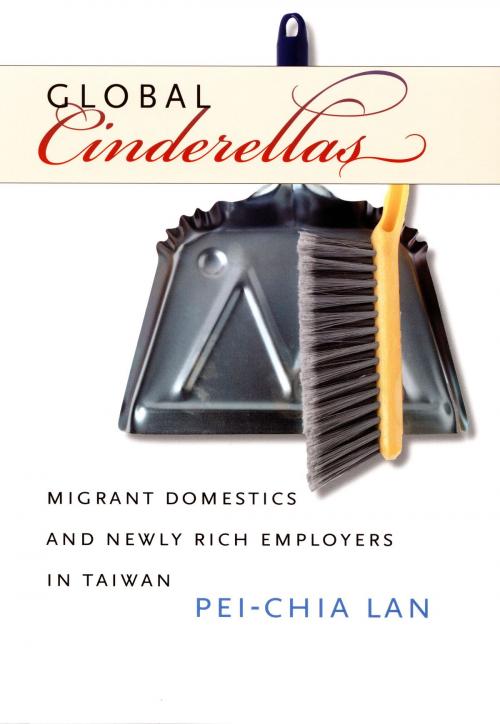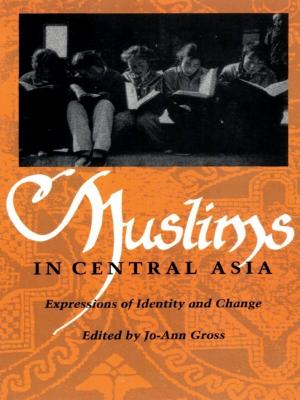Global Cinderellas
Migrant Domestics and Newly Rich Employers in Taiwan
Nonfiction, Social & Cultural Studies, Political Science, Politics, Labour & Industrial Relations, Business & Finance, Economics, International| Author: | Pei-Chia Lan | ISBN: | 9780822387787 |
| Publisher: | Duke University Press | Publication: | March 13, 2006 |
| Imprint: | Duke University Press Books | Language: | English |
| Author: | Pei-Chia Lan |
| ISBN: | 9780822387787 |
| Publisher: | Duke University Press |
| Publication: | March 13, 2006 |
| Imprint: | Duke University Press Books |
| Language: | English |
Migrant women are the primary source of paid domestic labor around the world. Since the 1980s, the newly prosperous countries of East Asia have recruited foreign household workers at a rapidly increasing rate. Many come from the Philippines and Indonesia. Pei-Chia Lan interviewed and spent time with dozens of Filipina and Indonesian domestics working in and around Taipei as well as many of their Taiwanese employers. On the basis of the vivid ethnographic detail she collected, Lan provides a nuanced look at how boundaries between worker and employer are maintained and negotiated in private households. She also sheds light on the fate of the workers, “global Cinderellas” who seek an escape from poverty at home only to find themselves treated as disposable labor abroad.
Lan demonstrates how economic disparities, immigration policies, race, ethnicity, and gender intersect in the relationship between the migrant workers and their Taiwanese employers. The employers are eager to flex their recently acquired financial muscle; many are first-generation career women as well as first-generation employers. The domestics are recruited from abroad as contract and “guest” workers; restrictive immigration policies prohibit them from seeking permanent residence or transferring from one employer to another. They care for Taiwanese families’ children, often having left their own behind. Throughout Global Cinderellas, Lan pays particular attention to how the women she studied identify themselves in relation to “others”—whether they be of different classes, nationalities, ethnicities, or education levels. In so doing, she offers a framework for thinking about how migrant workers and their employers understand themselves in the midst of dynamic transnational labor flows.
Migrant women are the primary source of paid domestic labor around the world. Since the 1980s, the newly prosperous countries of East Asia have recruited foreign household workers at a rapidly increasing rate. Many come from the Philippines and Indonesia. Pei-Chia Lan interviewed and spent time with dozens of Filipina and Indonesian domestics working in and around Taipei as well as many of their Taiwanese employers. On the basis of the vivid ethnographic detail she collected, Lan provides a nuanced look at how boundaries between worker and employer are maintained and negotiated in private households. She also sheds light on the fate of the workers, “global Cinderellas” who seek an escape from poverty at home only to find themselves treated as disposable labor abroad.
Lan demonstrates how economic disparities, immigration policies, race, ethnicity, and gender intersect in the relationship between the migrant workers and their Taiwanese employers. The employers are eager to flex their recently acquired financial muscle; many are first-generation career women as well as first-generation employers. The domestics are recruited from abroad as contract and “guest” workers; restrictive immigration policies prohibit them from seeking permanent residence or transferring from one employer to another. They care for Taiwanese families’ children, often having left their own behind. Throughout Global Cinderellas, Lan pays particular attention to how the women she studied identify themselves in relation to “others”—whether they be of different classes, nationalities, ethnicities, or education levels. In so doing, she offers a framework for thinking about how migrant workers and their employers understand themselves in the midst of dynamic transnational labor flows.















